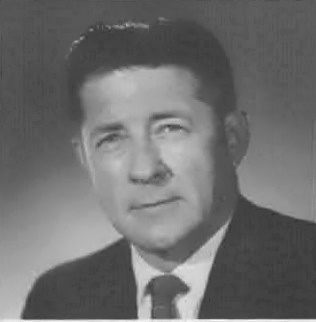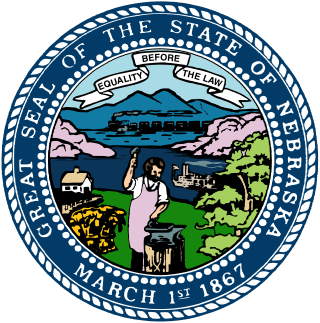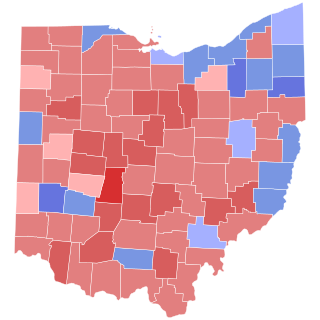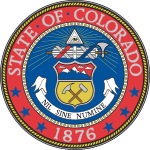
Presidential elections were held in the United States on November 5, 1996. Incumbent Democratic President Bill Clinton and his running mate, incumbent Democratic Vice President Al Gore were re-elected to a second and final term, defeating the Republican ticket of former Senate Majority Leader Bob Dole and former Secretary of Housing and Urban Development Jack Kemp and the Reform ticket of businessman Ross Perot and economist Pat Choate.

Richard Douglas Lamm was an American politician, writer, and attorney. He served three terms as the 38th Governor of Colorado as a Democrat (1975–1987) and ran for the Reform Party's nomination for President of the United States in 1996. Lamm was a Certified Public Accountant and was the co-director of the Institute for Public Policy Studies at the University of Denver.

The 1980 United States Senate elections were held on November 4, coinciding with Ronald Reagan's victory in the presidential election. The 34 Senate seats of Class 3 were contested in regular elections. Reagan's large margin of victory over incumbent Jimmy Carter gave a huge boost to Republican Senate candidates, allowing them to flip 12 Democratic seats and win control of the chamber for the first time since the end of the 83rd Congress in January 1955. This was the first time since 1966 that any party successfully defended all their own seats.

The 1974 United States Senate elections were held on November 5, with the 34 seats of Class 3 contested in regular elections. They occurred in the wake of the Watergate scandal, Richard M. Nixon's resignation from the presidency, and Gerald Ford's subsequent pardon of Nixon. Economic issues, specifically inflation and stagnation, were also a factor that contributed to Republican losses. As an immediate result of the November 1974 elections, Democrats made a net gain of three seats from the Republicans, as they defeated Republican incumbents in Colorado and Kentucky and picked up open seats in Florida and Vermont, while Republicans won the open seat in Nevada. Following the elections, at the beginning of the 94th U.S. Congress, the Democratic caucus controlled 60 seats, and the Republican caucus controlled 38 seats.

The 1968 United States Senate elections were elections for the United States Senate. Held on November 5, the 34 seats of Class 3 were contested in regular elections. They coincided with the presidential election of the same year. The Republicans picked up five net seats in the Senate. This saw Republicans win a Senate seat in Florida for the first time since Reconstruction.

John David Vanderhoof was an American politician. A member of the Republican Party, Vanderhoof served as the 37th Governor of Colorado from 1973 to 1975, assuming the office from John Arthur Love, who was appointed to the National Energy Policy Office by President Richard Nixon. Vanderhoof served out the remainder of Love's term, but failed to win a term in his own right, being defeated by Democrat Richard Lamm in the 1974 election.

United States gubernatorial elections were held on November 5, 2002, in 36 states and two territories. The Republicans won eight seats previously held by the Democrats, as well as the seat previously held by Minnesota governor Jesse Ventura, who was elected on the Reform Party ticket but had since renounced his party affiliation. The Democrats won 10 seats previously held by the Republicans, as well as the seat previously held by Maine governor Angus King, an independent. The elections were held concurrently with the other United States elections of 2002.
Theodore Lawrence Strickland was an American politician who served as the 39th Lieutenant Governor of Colorado from 1973 to 1975 under Governor John D. Vanderhoof. Strickland served in both houses of the Colorado General Assembly and was President of the Colorado Senate.

The 1998 United States Senate election in Colorado was held November 3, 1998, alongside other elections to the United States Senate in other states as well as elections to the United States House of Representatives and various state and local elections. Incumbent Senator Ben Nighthorse Campbell won re-election to a second term by a landslide. This was Campbell's first election as a Republican as he left the Democratic Party in 1995.
The 1974 Massachusetts general election was held on November 5, 1974, throughout Massachusetts. Democratic and Republican candidates were selected in party primaries held September 10, 1974.

The 2016 United States House of Representatives elections in Colorado were held on November 8, 2016, to elect the seven U.S. representatives from the state of Colorado, one from each of the state's seven congressional districts. The elections coincided with the 2016 U.S. presidential election, as well as other elections to the House of Representatives, elections to the United States Senate and various state and local elections. The primaries were held on June 28.

The 2018 United States House of Representatives elections in Colorado were held on November 6, 2018, to elect the seven U.S. representatives from the state of Colorado, one from each of the state's seven congressional districts. The Republican and Democratic Party primaries in Colorado were held on June 26, 2018. The elections coincided with the gubernatorial election, as well as other elections to the House of Representatives, elections to the United States Senate, and various state and local elections.

The 1974 Nebraska gubernatorial election was held on November 5, 1974, and featured incumbent Governor James Exon, a Democrat, defeating Republican nominee, state Senator Richard D. Marvel. Independent state Senator Ernie Chambers also captured 5% of the vote as a write-in candidate. This was the first gubernatorial election in Nebraska in which the nominees for Governor and Lieutenant Governor ran as a single ticket in the general election, though they were chosen in separate primary elections.

The 1912 Colorado gubernatorial election took place on November 8, 1912. Democratic state Senator Elias M. Ammons defeated the Progressive, Republican and Socialist candidates future Senator Edward P. Costigan, Clifford C. Parks and Charles A. Ashelstrom with 42.91% of the vote.

The 1974 Ohio gubernatorial election was held on November 5, 1974. Republican nominee Jim Rhodes narrowly defeated Democratic incumbent John J. Gilligan with 48.62% of the vote.

The 1982 Colorado gubernatorial election was held on November 2, 1982. Incumbent Democrat Richard Lamm defeated Republican nominee John Fuhr with 65.69% of the vote.

The 1978 Colorado gubernatorial election was held on November 7, 1978. Incumbent Democrat Richard Lamm defeated Republican nominee Ted L. Strickland with 58.76% of the vote.

The 1962 Colorado gubernatorial election was held on November 6, 1962. Republican nominee John Arthur Love defeated Democratic incumbent Stephen McNichols with 56.67% of the vote.

The 1974 New Hampshire gubernatorial election was held on November 5, 1974. Incumbent Republican Governor Meldrim Thomson Jr. defeated Democratic nominee Richard W. Leonard with 51.15% of the vote.

The 2022 Colorado Attorney General election was held on Tuesday, November 8, to elect the Attorney General of Colorado. Incumbent attorney general Phil Weiser won re-election to a second term, improving on his 2018 results.





















